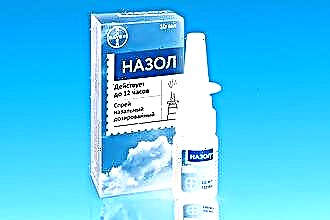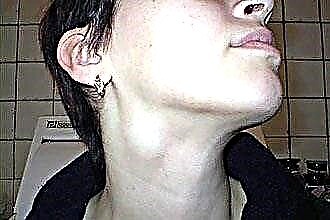The cough can be productive (wet) and unproductive (dry). Bronchospasm is caused by harmful bacteria, viruses, and allergic reactions. If cough attacks are not controlled and not eliminated in time, this is fraught with irritation of the respiratory tract mucosa and the appearance of severe inflammatory processes.
At the moment, the most effective and safe remedy for bronchospasm is a dry cough syrup. However, it is not suitable in all cases. For example, if an attack is caused by an allergic reaction of the body to a particular irritant, it cannot be consumed. Otherwise, you can further worsen the clinical picture.
Specificity of use
 Dry cough mixture improves the flow of phlegm. The medicine promotes its liquefaction and its early elimination from the respiratory tract. This has a positive effect on the work of the bronchi and prevents the appearance of spasms. In addition, pathogenic microbes are removed from the respiratory system along with the mucus. The patient's condition improves very quickly - after a couple of days of taking the medicine.
Dry cough mixture improves the flow of phlegm. The medicine promotes its liquefaction and its early elimination from the respiratory tract. This has a positive effect on the work of the bronchi and prevents the appearance of spasms. In addition, pathogenic microbes are removed from the respiratory system along with the mucus. The patient's condition improves very quickly - after a couple of days of taking the medicine.
This drug is indicated only for the treatment of a productive wet cough. If the bronchospasm is dry, it is not recommended to use the mixture. First you need to transform it into wet (with the help of other medications).
The medicine has the following effect:
- secretomotor;
- anti-inflammatory;
- expectorant.
It can be used by both a child (from 6 months) and an adult. The release form is a dry powdery substance that must be dissolved in clean water. Each sachet of dry medicine contains up to 1.5 g of powder. The effectiveness of a medicine depends not only on the type of cough. The correct dosage is essential.
The instructions for use are very simple. One sachet of powder must be diluted in 20 ml of warm boiled water, and then heated slightly over low heat (you do not need to pour boiling water over the mixture). The medicine is used three times a day - in the morning, at lunchtime and in the evening just before bedtime.
The preparation contains the following active ingredients:
- ammonium chloride;
- sodium bicarbonate;
- licorice root extract;
- extractor hood for thermopsis;
- anise oil;
- sugar.
Precautionary measures
 Shake the sachet a little before use. The medicine is dispensed in any pharmacy without a prescription. In this case, it is stored no more than 12 months from the date of issue. An already prepared cough remedy (diluted in water) can be refrigerated and taken for no longer than 10 days.
Shake the sachet a little before use. The medicine is dispensed in any pharmacy without a prescription. In this case, it is stored no more than 12 months from the date of issue. An already prepared cough remedy (diluted in water) can be refrigerated and taken for no longer than 10 days.
As a rule, this antitussive drug is used in combination with other methods. Dilution of sputum with this medication will be possible if the patient drinks an abundant warm drink. This means that during treatment with a dry mixture, you need to drink as much as possible (tea, juice, compote, or plain warm water).
Like any other medicine, dry medicine has contraindications for use:
 Taking the drug is prohibited if the patient has an individual intolerance to one or more components. The patient's hypersensitivity to the drug can lead to a severe allergic reaction.
Taking the drug is prohibited if the patient has an individual intolerance to one or more components. The patient's hypersensitivity to the drug can lead to a severe allergic reaction.- Do not give the medicine to children who are under 6 months old. From 4 years old it can be consumed one teaspoon four times a day. Patients over 12 years old drink the mixture at least three times a day (otherwise the treatment will be ineffective).
- It is forbidden to use the mixture if the patient has inflammatory processes in the kidneys (especially in acute form) - glomerulonephritis, pyelonephritis, and so on. Therapy can provoke an exacerbation of the disease with all the ensuing consequences.
- It is not recommended to be treated with this remedy in combination with other antitussive drugs ("Sinekod", "Libeksin", "Stopussin").
- Do not use the drug for patients with diabetes mellitus (the mixture contains sugar).
Side effects and use during pregnancy
As clinical practice shows, most patients respond very well to dry mixture. In rare cases, allergic reactions are diagnosed in the form of a rash on the body and itching. Even less often, there are attacks of nausea and vomiting, pain in the epigastric region of the abdomen (epigastrium), provided that the patient has problems with the gastrointestinal tract.
Overuse of the drug also causes nausea and vomiting. In this case, doctors recommend gastric lavage.
 Let's now talk about the use of the medicine during pregnancy. Cough attacks are one of the most pressing problems for expectant mothers. During gestation, reflex muscle spasms can lead to hypoxia (insufficient oxygen supply to the tissues of the body) and even cause premature birth.
Let's now talk about the use of the medicine during pregnancy. Cough attacks are one of the most pressing problems for expectant mothers. During gestation, reflex muscle spasms can lead to hypoxia (insufficient oxygen supply to the tissues of the body) and even cause premature birth.
Pregnant women are allowed to use dry mixture. This is extremely important, since many cough suppressants are prohibited in this case. However, only a doctor should prescribe the dosage and monitor the use of the medication.
Reckless or unjustified use of the medicine during pregnancy is fraught with many problems.
Dry mixture turns out to be highly effective in the fight against wet productive cough. It contains herbal ingredients that gently and quickly eliminate irritation of the mucous membrane and help to eliminate bronchospasm. Therefore, such a remedy can be used by children (from 6 months) and expectant mothers.
Do not forget that self-medication with a potion is prohibited. If you want to get rid of a cough with minimal consequences for the body, consult your doctor. He will select the dosage and the optimal treatment regimen.

 Taking the drug is prohibited if the patient has an individual intolerance to one or more components. The patient's hypersensitivity to the drug can lead to a severe allergic reaction.
Taking the drug is prohibited if the patient has an individual intolerance to one or more components. The patient's hypersensitivity to the drug can lead to a severe allergic reaction.

